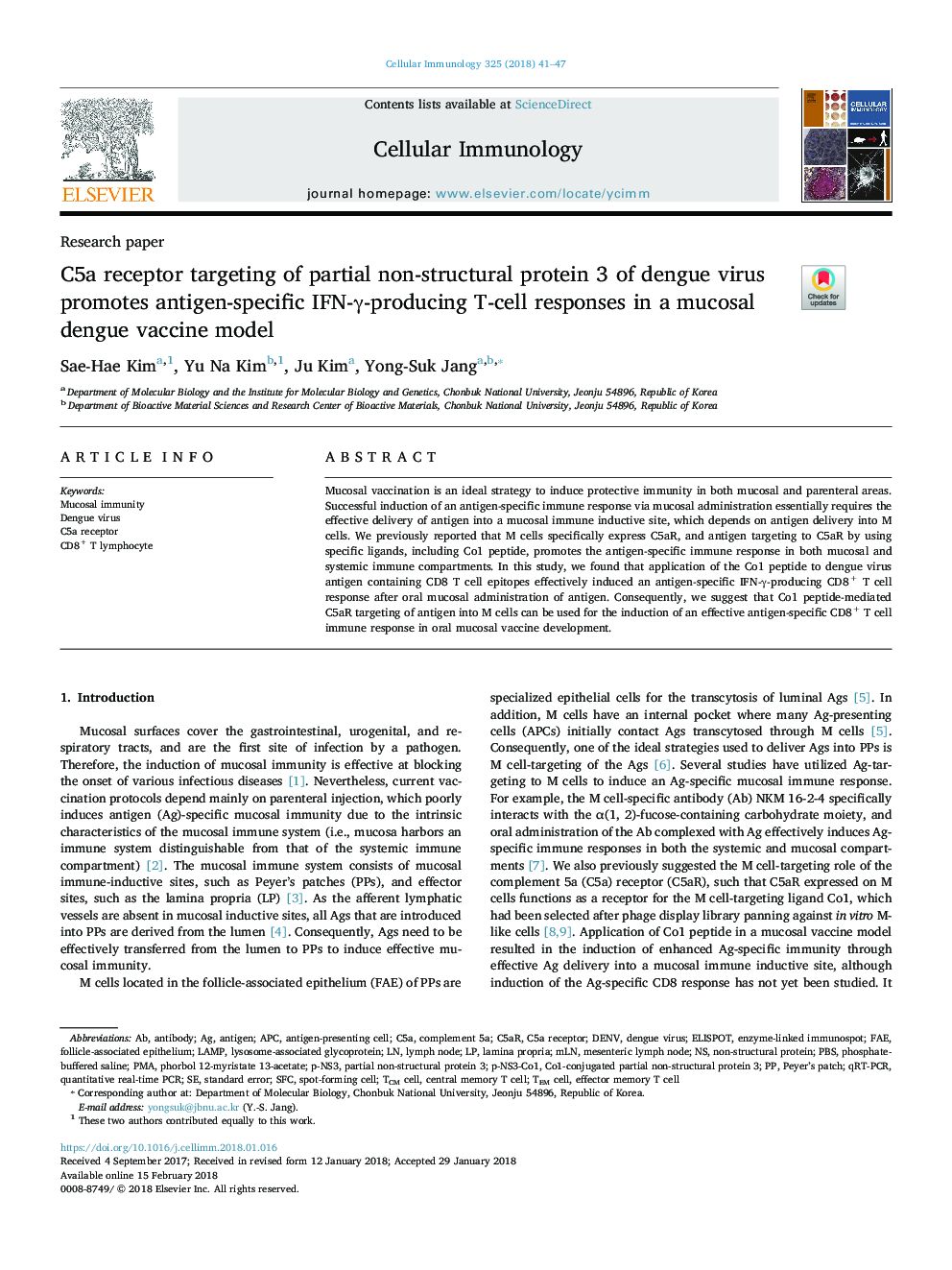| Article ID | Journal | Published Year | Pages | File Type |
|---|---|---|---|---|
| 8463585 | Cellular Immunology | 2018 | 7 Pages |
Abstract
Mucosal vaccination is an ideal strategy to induce protective immunity in both mucosal and parenteral areas. Successful induction of an antigen-specific immune response via mucosal administration essentially requires the effective delivery of antigen into a mucosal immune inductive site, which depends on antigen delivery into M cells. We previously reported that M cells specifically express C5aR, and antigen targeting to C5aR by using specific ligands, including Co1 peptide, promotes the antigen-specific immune response in both mucosal and systemic immune compartments. In this study, we found that application of the Co1 peptide to dengue virus antigen containing CD8 T cell epitopes effectively induced an antigen-specific IFN-γ-producing CD8+ T cell response after oral mucosal administration of antigen. Consequently, we suggest that Co1 peptide-mediated C5aR targeting of antigen into M cells can be used for the induction of an effective antigen-specific CD8+ T cell immune response in oral mucosal vaccine development.
Keywords
SFCcomplement 5aCentral memory T cellTEM celleffector memory T cellFAEMLNC5aRC5aDENVELISPOTphorbol 12-myristate 13-acetateAPCPBSqRT-PCRPMAantigen-presenting cellfollicle-associated epitheliumMucosal immunityEnzyme-linked immunospotstandard errorSpot-forming cellLAMPLamina propriaCD8+ T lymphocytePhosphate-buffered salinequantitative real-time PCRDengue virusAntibodyAntigenNon-structural proteinPeyer’s patchmesenteric lymph nodeLymph nodeC5a receptor
Related Topics
Life Sciences
Biochemistry, Genetics and Molecular Biology
Cell Biology
Authors
Sae-Hae Kim, Yu Na Kim, Ju Kim, Yong-Suk Jang,
